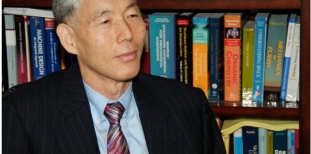A research team led by Prof. Sang-Yup Lee of the KI for the BioCentury has succeeded in engineering the bacterium E. coli to produce the industrial chemical putrescine.
Putrescine, a four carbon chain diamine, is an important platform chemical with a wide range of applications for the pharmaceutical, agrochemical and chemical industries. It is currently used to synthesize nylon-4,6, a widely used engineering plastic.
The research result, published in the Biotechnology and Bioengineering journal, proviDrdes a renewable alternative to the traditional process using fossil fuels.
Currently the production of putrescine on an industrial scale relies on chemical synthesis, which requires non-renewable petrochemicals and expensive catalyst systems. This process is highly toxic and flammable with potentially severe repercussions for both the environment and human health.
"For the first time we have developed a metabolically engineered E. coli strain that efficiently produces putrescine," said Professor Lee. "The development of a bio-refinery for chemicals and materials is very important in a world where dependency on fossil fuels is an increasing concern."
The team developed a strain of E.coli capable of producing putrescine through metabolic engineering. This is where a cell's metabolic and regulatory networks are enhanced in order to increase production of a needed material.
First the team weakened or deleted competing metabolic pathways within the E. coli strain before deleting pathways which cause putrescine degradation. They also amplified the crucial enzyme Spec C, which converts the chemical ornithine into putrescine. Finally the putrescine exporter, which allows excretion of intracellularly made putrescine, was engineered while a global regulator was engineered to further increase the concentration of putrescine. The final result of this process was an engineered E.coli strain which produced 24.2 g of putrescine per litre.
However, as it was believed that putrescine is toxic to microorganisms the team had to study putrescine tolerance in E.coli before it could be engineered to overproduce the chemical to the levels needed for industrial production.
The results revealed that E. coli can tolerate at least 0.5 M of putrescine, which is tenfold higher than the usual concentration in the cell. This level of tolerance was an important surprise as it means that E. coli can be engineered to overproduce putrescine to industrially competitive levels.
"The previously expected toxicity of putrescine may explain why its microbial production has been overlooked," said Lee. "Now a metabolically engineered E. coli strain has been developed which is capable of efficiently producing putrescine using renewable methods to an industrial level. This metabolic engineering framework should be useful for developing metabolically engineered microorganisms for the efficient production of other chemicals from renewable resources," he added.



 대한민국 특허왕 이대길 교수, 올해의 KAIST인에 선정 [2009-11-23]
대한민국 특허왕 이대길 교수, 올해의 KAIST인에 선정 [2009-11-23]
 이상엽, 정하웅 교수팀, 가상세포로 필수대사물질 발굴, 간겅성 ...
이상엽, 정하웅 교수팀, 가상세포로 필수대사물질 발굴, 간겅성 ...